Today, May 31, we celebrate the feast of the Visitation of Mary to Elizabeth, the second Joyful Mystery of the Rosary, following the Annunciation. Shortly after having been graced with the Incarnation within her, Our Blessed Mother quickly sets off on a dangerous trip to visit her elderly cousin, Elizabeth, also with child. We see, in this way, that the first action of Mary, following the indwelling of Christ, is one of profound sacrifice, service, self-denying charity, and love of her neighbor. The feast of the Visitation reminds us that Our Blessed Mother will never fail to promptly assist us, and that we should do the same, through charity and service to others.
39At that time Mary got ready and hurried to a town in the hill country of Judea, 40where she entered Zechariah's home and greeted Elizabeth. 41When Elizabeth heard Mary's greeting, the baby leaped in her womb, and Elizabeth was filled with the Holy Spirit. 42In a loud voice she exclaimed: "Blessed are you among women, and blessed is the child you will bear! 43But why am I so favored, that the mother of my Lord should come to me? 44As soon as the sound of your greeting reached my ears, the baby in my womb leaped for joy. 45Blessed is she who has believed that what the Lord has said to her will be accomplished!"
46And Mary said:
"My soul glorifies the Lord
47and my spirit rejoices in God my Savior,
48for he has been mindful
of the humble state of his servant.
From now on all generations will call me blessed,
49for the Mighty One has done great things for me—
holy is his name.
50His mercy extends to those who fear him,
from generation to generation.
51He has performed mighty deeds with his arm;
he has scattered those who are proud in their inmost thoughts.
52He has brought down rulers from their thrones
but has lifted up the humble.
53He has filled the hungry with good things
but has sent the rich away empty.
54He has helped his servant Israel,
remembering to be merciful
55to Abraham and his descendants forever,
even as he said to our fathers."
56Mary stayed with Elizabeth for about three months and then returned home. (Luke 1:39-56)
Through the recitation of the Magnficat (Luke 1:46-55), Mary declares herself the work of the Lord, the new Ark of the Covenant (for more on the Magnificat, see here and here). The writings of Saint Gregory of Neocaesarea (213 -270) remind us who Mary is: “And thus she received the word, and in the due time of the fulfillment according to the body's course she brought forth the priceless pearl. Come, then, ye too, dearly beloved, and let us chant the melody which has been taught us by the inspired harp of David, and say, ‘Arise, O Lord, into Thy rest; Thou, and the ark of Thy sanctuary.’ For the holy Virgin is in truth an ark, wrought with gold both within and without, that has received the whole treasury of the sanctuary.” Similarly, Saint Athanasius wrote of Mary: “O noble Virgin, truly you are greater than any other greatness. For who is your equal in greatness, O dwelling place of God the Word? To whom among all creatures shall I compare you, O Virgin? You are greater than them all, O Ark of the Covenant, clothed with purity instead of gold! You are the Ark in which is found the golden vessel containing the true manna, that is, the flesh in which Divinity resides.”
We read in the Gospel of Luke that Mary, upon hearing the announcement of the angel, went in a hurry—with great haste—to visit her cousin. In his commentary, Saint Ambrose describes this haste with the translated phrase, ‘the grace of the Holy Spirit does not know delayed efforts’ or ‘delayed efforts are foreign to the grace of the Holy Spirit.” It becomes clear that Mary, upon accepting the grace of the Spirit into herself, becomes completed possessed by it, and is compelled to immediate action. Such possession by God’s Spirit is the only possession worthwhile-- life-giving, hopeful and joyful! We are reminded that through the Spirit, Christ is growing inside each of us, as well. And when we embrace that growth, our lives will take on meaning and purpose which we cannot even begin to imagine.
Caryll Houselander, in The Reed of God, likens the growth within Elizabeth—the sanctification of Saint John the Baptist—to the growth within each of us as we embrace and love Christ. She wrote: "Sometimes it may seem to us that there is no purpose in our lives, that going day after day for years to this office or that school or factory is nothing else but waste and weariness. But it may be that God has sent us there because but for us Christ would not be there. If our being there means that Christ is there, that alone makes it worthwhile. ... It is not necessary at this stage of our contemplation to speak to others of the mystery of life growing in us. It is only necessary to give ourselves to that life, all that we are, to pray without ceasing, not by a continual effort to concentrate our minds but by a growing awareness that Christ is being formed in our lives from what we are. We must trust him for this; because it is not a time to see his face, we must possess him secretly and in darkness, as the earth possesses the seed. We must not try to force Christ's growth in us, but with a deep gratitude for the light burning secretly in our darkness, we must fold our concentrated love upon him like earth, surrounding, holding, and nourishing the seed. We must be swift to obey the winged impulses of his love, carrying him to wherever he longs to be: and those who recognize his presence will be stirred, like Elizabeth, with new life. They will know his presence, not by any special beauty or power shown by us, but in the way that the bud knows the presence of the light, by the unfolding in themselves, a putting forth of their own beauty.”
The physical act of the visitation, itself, is a rather brief—yet intimate—encounter. Mary, having carried the Word of God through the dangerous hill country, greets her cousin, who shouts in return. Elizabeth hears the Blessed Mother, and is filled with the Holy Spirit, so much so that she cannot contain her love. It literally springs forth loudly in praise and exclamation: “Blessed are you among women, and blessed is the fruit of thy womb!” Her ears are opened to the Word of God, and her tongue is set free to proclaim His majesty. And all of this, accomplished through the grace of the Holy Spirit, in the vessel of the Mother of God.
Moreover, upon hearing the greeting of Mary, Elizabeth’s child—Saint John the Baptist—leaps in her womb, feeling the presence of his Divine Savior. It is in that moment that he is cleansed of his sin, filled with the grace of God, and brought into close friendship with the Lord. We see Mary, filled with the Spirit, as the channel of the Lord’s graces, as the co-redemptrix of our lives. For the first time, she exercised the office which belonged to the Mother of God made man, that He might by her mediation sanctify and glorify us. Starting with Saint John the Baptist, and continuing until today, Our Blessed Mother never ceases to intercede for us, advocate for us, and bestow upon us the abundant grace of God, through her merciful hands.
Pope John Paul II, in the Mother of the Redeemer, wrote of Mary: “Moved by charity, therefore, Mary goes to the house of her kinswoman.... While every word of Elizabeth’s is filled with meaning, her final words would seem to have a fundamental importance: ‘And blessed is she who believed that there would be a fulfillment of what had been spoken to her from the Lord’ (Luke 1:45). These words can be linked with the title ‘full of grace’ of the angel’s greeting. Both of these texts reveal an essential Mariological content, namely the truth about Mary, who has become really present in the mystery of Christ precisely because she ‘has believed.’ The fullness of grace announced by the angel means the gift of God himself. Mary’s faith, proclaimed by Elizabeth at the visitation, indicates how the Virgin of Nazareth responded to this gift.”
Mother Teresa of Calcutta wrote, on this feast of the blessed Visitation of Mary to Elizabeth: “In the mystery of the Annunciation and the Visitation, Mary is the very model of the life we should lead. First of all, she welcomed Jesus in her existence; then, she shared what she had received. Every time we receive Holy Communion, Jesus the Word becomes flesh in our life, a “gift of God” who is at one and the same time beautiful, kind, unique. Thus, the first Eucharist was such: Mary’s offering of her Son in her, in whom he had set up the first altar. Mary, the only one who could affirm with absolute confidence, “this is my body,” from that first moment offered her own body, her strength, all her being, to form the Body of Christ.”
We see then, in the Visitation of Mary to Elizabeth, the gift of her life—a life filled with the grace of the Holy Spirit, a life filled with the powerful gifts of the Heavenly Father in the Divine Son incarnate. Mary truly becomes a reflection of the Lord, shining forth from her holy vessel, bathing Elizabeth, Saint John the Baptist, and each of us, in the glorious light of heaven. In the words of Saint Ambrose (for more from Saint Ambrose on the Visitation, click here): "Let Mary's soul be in us to glorify the Lord; let her spirit be in us that we may rejoice in God our Savior."
Almighty God,
by whose grace Elizabeth rejoiced with Mary
and greeted her as the mother of the Lord:
look with favor, we beseech thee, on thy lowly servants,
that, with Mary, we may magnify thy holy name
and rejoice to acclaim her Son our Savior,
who liveth and reigneth with thee,
in the unity of the Holy Spirit,
one God, now and for ever.
Year 2: Day 151 of 365
Prayer Intentions: Hearts of love and “visitation”
Requested Intentions: For health of friend, for successful relationships for children, for safe pregnancy for daughter (C); For the health of a mother (J); Virtue for daughter (V); Successful acceptance to college for nephew (M); For the health of a cousin (T); Freedom from legal difficulties for husband (S); Husband’s freedom from illness (L); Personal intentions (S); Successful passing of dental board examination (P); Blessings on a family (Z); Successful permanent employment (C); Healing of a son with autism (J); Son’s successful employment (L); For the intentions of family and relatives, for the Carthusian community (T); For personal intentions (A); Restoration of lost hearing (C); Resolution of relational and financial challenges (S); Comfort following loss of husband, security for family, assistance with housing (B); Healing and return of brother (O); Successful hermitage foundation (S); Support from family, permission to marry (H); Recovery of wife following surgery, freedom from depression (W); Protection and recovery of mentally ill daughter (J); Successful resolution to legal proceedings (N); Freedom from worry and successful employment (M); For successful sale of home and freedom from debt (J); Freedom from pain and illness (E).
Why pray the Rosary every day for a year?
Each time the Blessed Virgin has appeared-- whether it be to Saint Bernadette Soubirous at Lourdes; to Lucia, Jacinta, and Francisco at Fatima; or to Mariette Beco at Banneux-- she has asserted the importance, saving grace, and power of praying the Holy Rosary on a daily basis. Based upon her words, the Rosary is penance and conversion for sinners, a pathway to peace, an end to war, and a powerful act of faith in Jesus Christ. Pope Paul VI presented the Rosary as a powerful means to reach Christ "not merely with Mary but indeed, insofar as this is possible to us, in the same way as Mary, who is certainly the one who thought about Him more than anyone else has ever done."
To show us how this is done, perhaps no one has been more eloquent than the great Cardinal Newman, who wrote: "The great power of the Rosary consists in the fact that it translates the Creed into Prayer. Of course, the Creed is already in a certain sense a prayer and a great act of homage towards God, but the Rosary brings us to meditate again on the great truth of His life and death, and brings this truth close to our hearts. Even Christians, although they know God, usually fear rather than love Him. The strength of the Rosary lies in the particular manner in which it considers these mysteries, since all our thinking about Christ is intertwined with the thought of His Mother, in the relations between Mother and Son; the Holy Family is presented to us, the home in which God lived His infinite love."
As Mary said at Fatima, "Jesus wants to use you to make Me known and loved. He wishes to establish the devotion to My Immaculate Heart throughout the world. I promise salvation to whoever embraces it; these souls will be dear to God, like flowers put by Me to adorn his throne."

Subscribe to:
Post Comments (Atom)







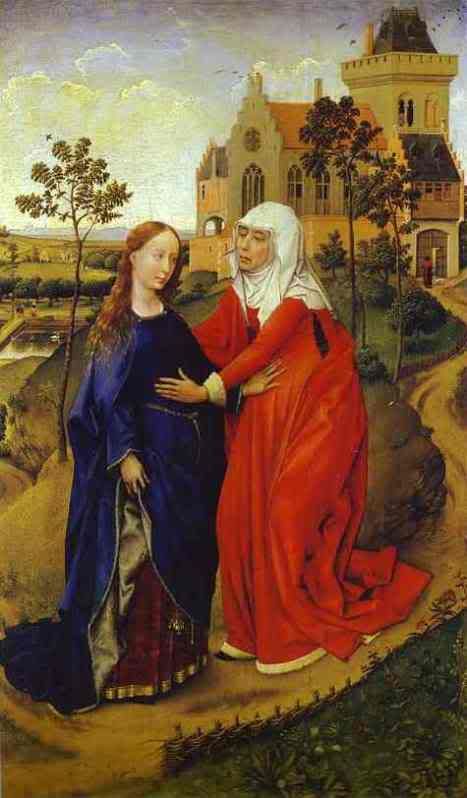

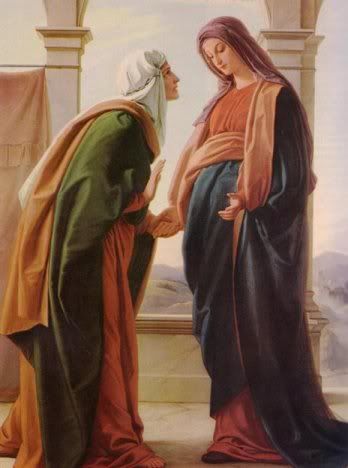
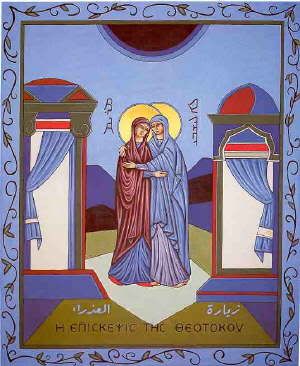
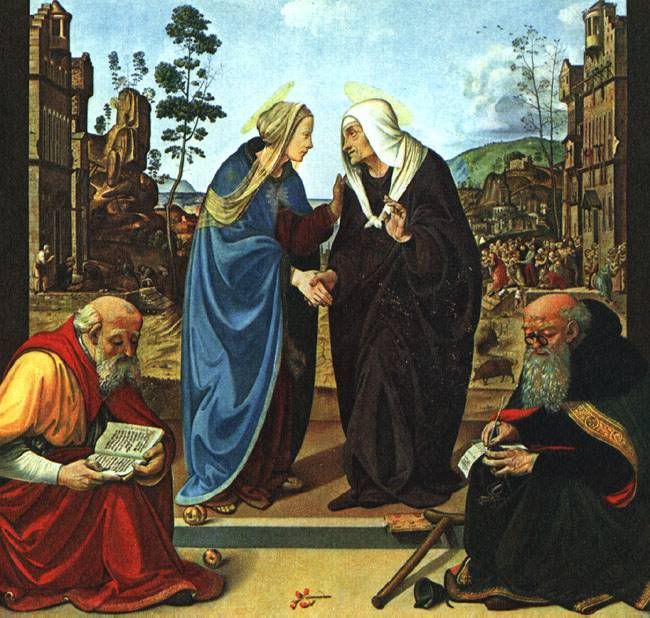
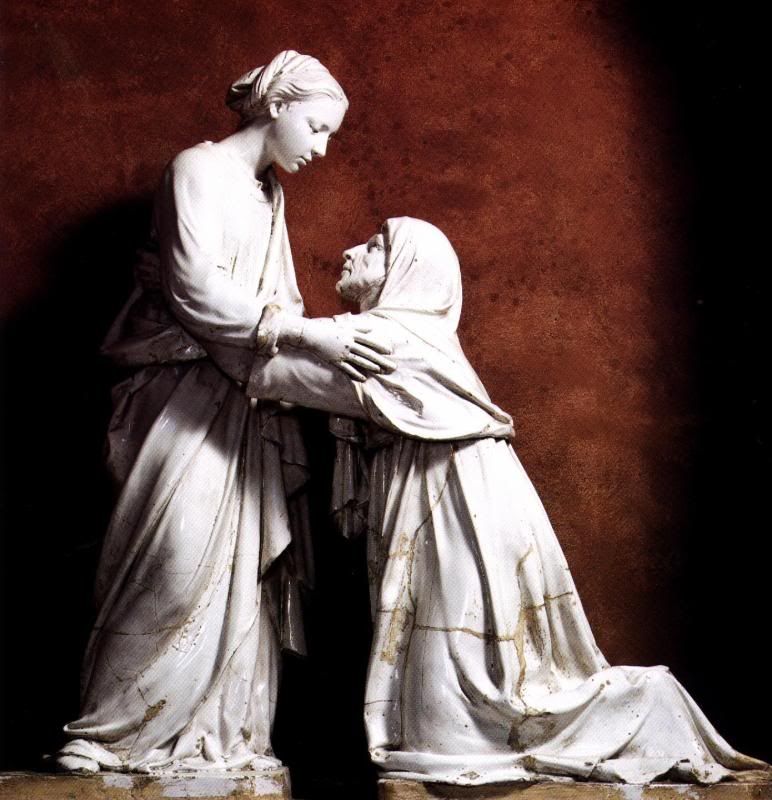
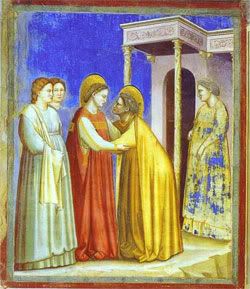
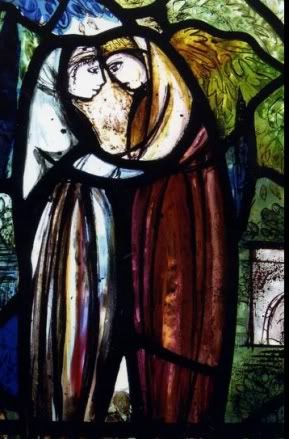
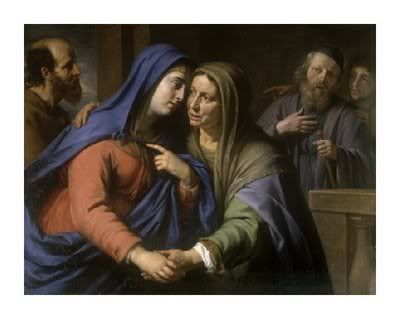
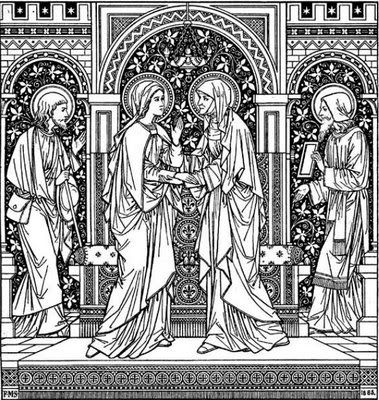
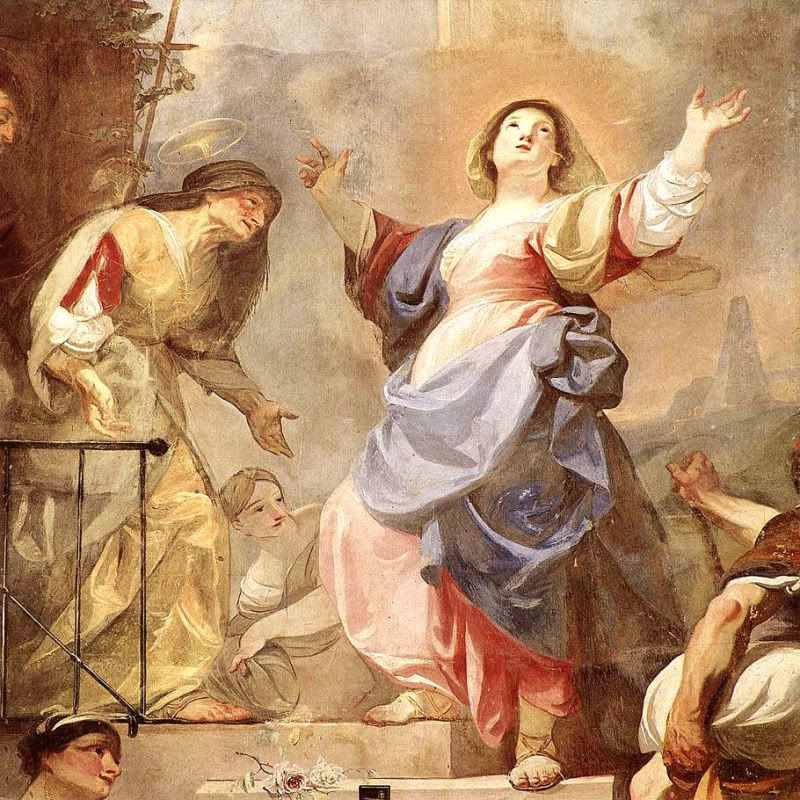
0 comments:
Post a Comment
Thanks for leaving a comment. If you wish to submit a prayer request, however, please do so above, using the "Contact" tab.